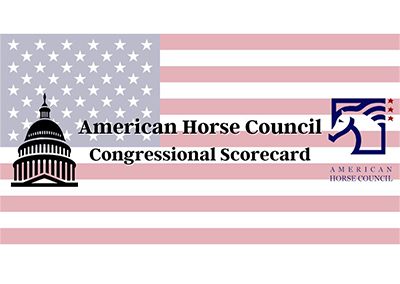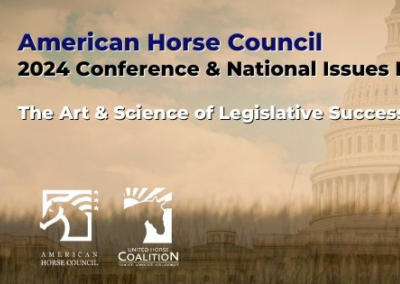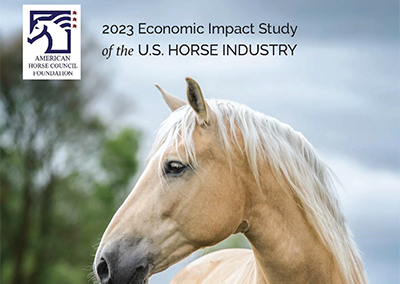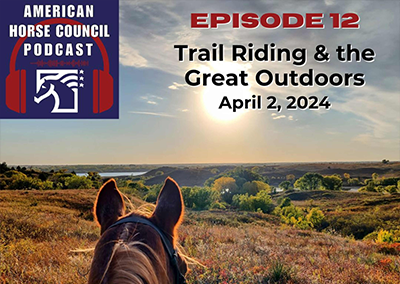
by gabbydondero25 | Apr 11, 2024 | News
BACK WASHINGTON, DC—There is an oft-repeated saying in Washington: “If you want a friend in Washington, get a dog.” Thankfully, that’s not the only option. The American Horse Council (AHC) continues to rely on dependable advocates for the equine industry among members...

by gabbydondero25 | Apr 5, 2024 | Conference, News
BACK When you want to be in the know about the latest issues affecting the horse industry nationally and regionally, you’ve got to be in Washington, D.C., June 9-12. The Royal Sonesta Washington DC, Capitol Hill is the place to be for insightful and informative...

by gabbydondero25 | Apr 5, 2024 | Economic Impact Study, Press Release
BACK The American Horse Council (AHC) and AHC Foundation are proud to release the 2023 National Economic Impact Study Technical Appendix (also known as Report #2). The original report, released in January 2024, contained national statistics and economic impact data,...

by gabbydondero25 | Apr 2, 2024 | Podcasts, Trail Riding
Shownotes Spring has sprung and we’re ready to hit the trails! Are you? Heidi Melocco joins Julie and Megan to talk about Horse Trails of America as we talk about how horse enthusiasts are joining together to help grow a network of trail riding information with a...





